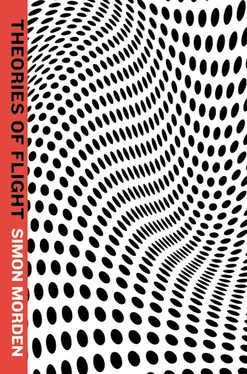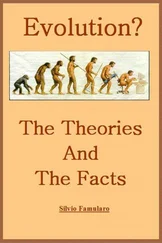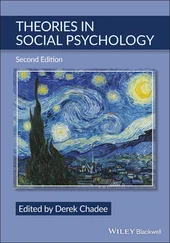Simon Morden
THEORIES OF FLIGHT
W hen I was a very new writer, I—for reasons explained in the dedication for Equations of Life— fell in with a bunch of horror writers. It was more by accident than design, but one of those happy accidents I’ve never regretted. It started in the early days of what became “the web,” when things were beginning to move off the newsnets and list servers. Message boards were becoming popular, and I ended up at the place where most of the UK’s young horror writers hung out. That site was Masters of Terrors.
Now, to think of the bunch of us—and most of us still meet up every year at the British Fantasy Society’s FantasyCon—as young… well, we were once. Honest. Now we’re pretty much all in our forties, bald or balding, with a preponderance of black T-shirts and silly beards. There’s been some fall out: some people we don’t see anymore, some have gone on to do other things and live different lives. But the number of us from Masters of Terror, from that first pub meeting in London (at the Dead Nurse, I think), who are still active in writing is quite startling.
We write fantasy and crime and horror and SF: short stories, novellas, novels, screenplays and script and tie-ins. All sorts, whatever pays the bills and keeps us interested. Some have become publishers, even. What hasn’t changed is that we still like to tell each other tall tales and we still try to scare our friends and our readers. Learning how to terrify someone through the medium of prose—mere words—ought to be a weapon in every writer’s armory. And I learned how at Masters of Terror.
So this one’s for Masters of Terror’s webmaster, Andy. Thanks, mate.
1

P etrovitch stared at the sphere in his hands, turning it slowly to reveal different parts of its intricately patterned surface. Shining silver lines of metal in curves and whorls shone against the black resin matrix, the seeming chaos replicated throughout the hidden depths of the globe; a single strand of wire that swam up and down, around and around, its path determined precisely by equations he himself had discovered.
It was a work of art; dense, cold, beautiful, a miracle of manufacture. A kilometer of fine alloy wound up into a ball the size of a double fist.
But it was supposed to be more than that. He let it fall heavily onto his desk and flicked his glasses off his face. His eyes, always so blue, were surrounded with red veins. He scrubbed at them again.
The yebani thing didn’t, wouldn’t work, no matter how much he yelled and hit it. The first practical test of the Ekanobi-Petrovitch laws, and it just sat there, dumb, blind, motionless.
Stanford—Stanford! Those raspizdyay kolhoznii amerikanskij— were breathing down his neck, and he knew that if he didn’t crack it soon, they’d either beat him to his own discovery or debunk the whole effort. He was damned if he was going to face them across a lecture hall having lost the race. And Pif would string him up by his yajtza, which was a more immediate problem.
So, the sphere didn’t work. It should. Every test he’d conducted on it showed that it’d been made with micrometer precision, exactly in the configuration he’d calculated. He’d run it with the right voltage.
Everything was perfect, and still, and still…
He picked up his glasses from where he’d thrown them. The same old room snapped into focus: the remnants of Pif’s time with him scattered across her old desk, the same pot plants existing on a diet of cold coffee, the light outside leaking in around the yellowed slats of the Venetian blinds.
Sound leaked in, too: sirens that howled toward the crack of distant gunfire, carried on cold, still winter air. Banging and clattering, hammers and drills, the reverberations of scaffolding. A tank slapping its caterpillar tracks down on the tarmac.
None of it loud enough to distract him from the hum of the fluorescent tube overhead.
He opened a drawer and pulled out a sheet of printed paper, which he placed squarely in front of him. He stared at the symbols on it, knowing the answer was there somewhere, if only he knew where to look. He turned his wedding ring in precise quarter circles, still finding it a cold and alien presence on his body.
Time passed. Voices in the corridor outside grew closer, louder, then faded.
Petrovitch looked up suddenly. His eyes narrowed and he pushed his glasses back up his nose. His heart spun faster, producing a surge of blood that pricked his skin with sweat.
Now everything was slow, deliberate, as he held on to his idea. He reached for a pencil and turned the sheet of paper over, blank side to him. He started to scratch out a diagram, and when he’d finished, some numbers to go with it.
Petrovitch put down the pencil and checked his answer.
Dubiina, he whispered to himself, durak, balvan.
The ornate sphere had taunted him from across the desk for the last time. He was going to be its master now. He reached over and fastened his hand around it, then threw it in the air with such casual defiance that it would have had his head of department leaping to save it.
He caught it deftly on its way down, and knew that it would never have to touch the floor again.
He carried it to the door, flung it open, and stepped through. The two paycops lolling beside the lift caught a flavor of his mood. One nudged the other, who turned to see the white blond hair and tight-lipped smile of Petrovitch advancing toward them at a steady gait.
“Doctor Petrovitch?” asked one. “Is there a problem?”
Petrovitch held the sphere up in front of him. “Out of the way,” he said. “Science coming through.”
He ran down the stairs; two stories, sliding his hand over the banister and only taking a firm hold to let his momentum carry him through the air for the broad landings. Now was not the time to wait, foot-tapping, for a crawling lift car that gave him the creeps anyway. Everything was urgent, imminent, immanent.
Second floor: his professor had given him two graduate students, and he had had little idea what to do with them. The least he could do to compensate for several months of make-work was to include them in this. He needed witnesses, anyway. And their test rig. Which may or may not be completed: Petrovitch hadn’t seen either student for a week, or it might have been two.
Either way, he was certain he could recognize them again.
He kicked the door to their lab space open. They were there, sitting in front of an open cube of wood, a cat’s cradle of thin wires stretched inside. An oscilloscope—old school cathode tube—made a pulsing green line across its gridded screen.
The woman—blonde, skin as pale as parchment, eyes gray like a ghost’s… McNeil: yes, that was her name—glanced over her shoulder. She jumped up when she saw Petrovitch’s expression and what he was carrying.
“You’ve finished it.”
“This? Yeah, about a week ago. Should have mentioned it, but that’s not what’s important now.” He advanced on a steel trolley. In time-honored fashion, new equipment was built in the center of the lab. The old was pushed to the wall to be cannibalized for parts or left to fossilize.
He inspected the collection of fat transformers on the trolley’s top shelf. When he squatted down to inspect the lower deck, he found some moving coil meters and something that might have been the heavy-duty switching gear from a power station. “Do either of you need any of this?”
He waited all of half a second for a reply before seizing the trolley in his free hand and trying to tip it over. Some of the transformers were big ferrite ones, and he couldn’t manage it one-handed. McNeil and the man—Petrovitch’s mind was too full to remember his name—looked at each other.
Читать дальше













